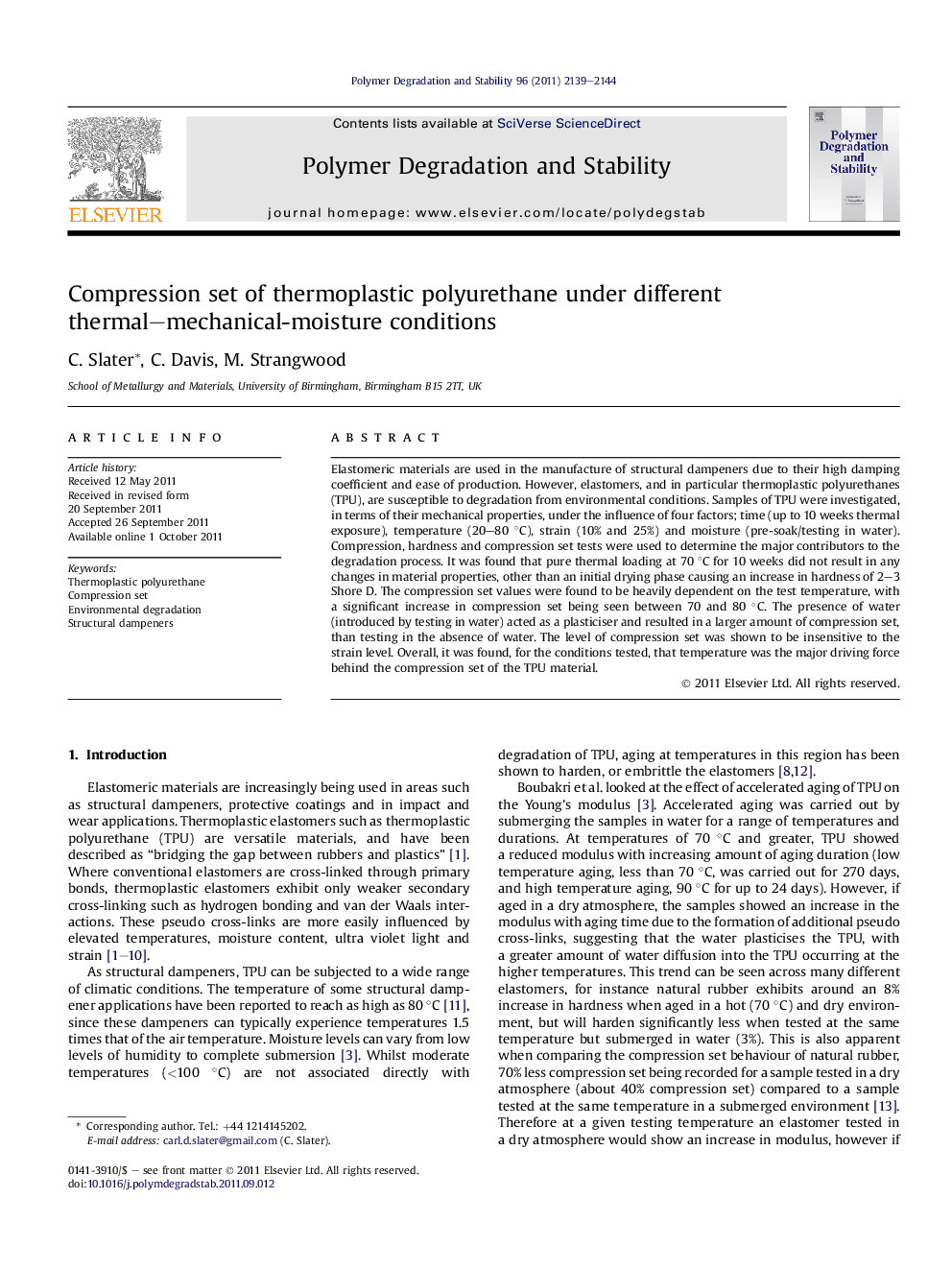| Article ID | Journal | Published Year | Pages | File Type |
|---|---|---|---|---|
| 5203241 | Polymer Degradation and Stability | 2011 | 6 Pages |
Abstract
Elastomeric materials are used in the manufacture of structural dampeners due to their high damping coefficient and ease of production. However, elastomers, and in particular thermoplastic polyurethanes (TPU), are susceptible to degradation from environmental conditions. Samples of TPU were investigated, in terms of their mechanical properties, under the influence of four factors; time (up to 10 weeks thermal exposure), temperature (20-80 °C), strain (10% and 25%) and moisture (pre-soak/testing in water). Compression, hardness and compression set tests were used to determine the major contributors to the degradation process. It was found that pure thermal loading at 70 °C for 10 weeks did not result in any changes in material properties, other than an initial drying phase causing an increase in hardness of 2-3 Shore D. The compression set values were found to be heavily dependent on the test temperature, with a significant increase in compression set being seen between 70 and 80 °C. The presence of water (introduced by testing in water) acted as a plasticiser and resulted in a larger amount of compression set, than testing in the absence of water. The level of compression set was shown to be insensitive to the strain level. Overall, it was found, for the conditions tested, that temperature was the major driving force behind the compression set of the TPU material.
Related Topics
Physical Sciences and Engineering
Chemistry
Organic Chemistry
Authors
C. Slater, C. Davis, M. Strangwood,
